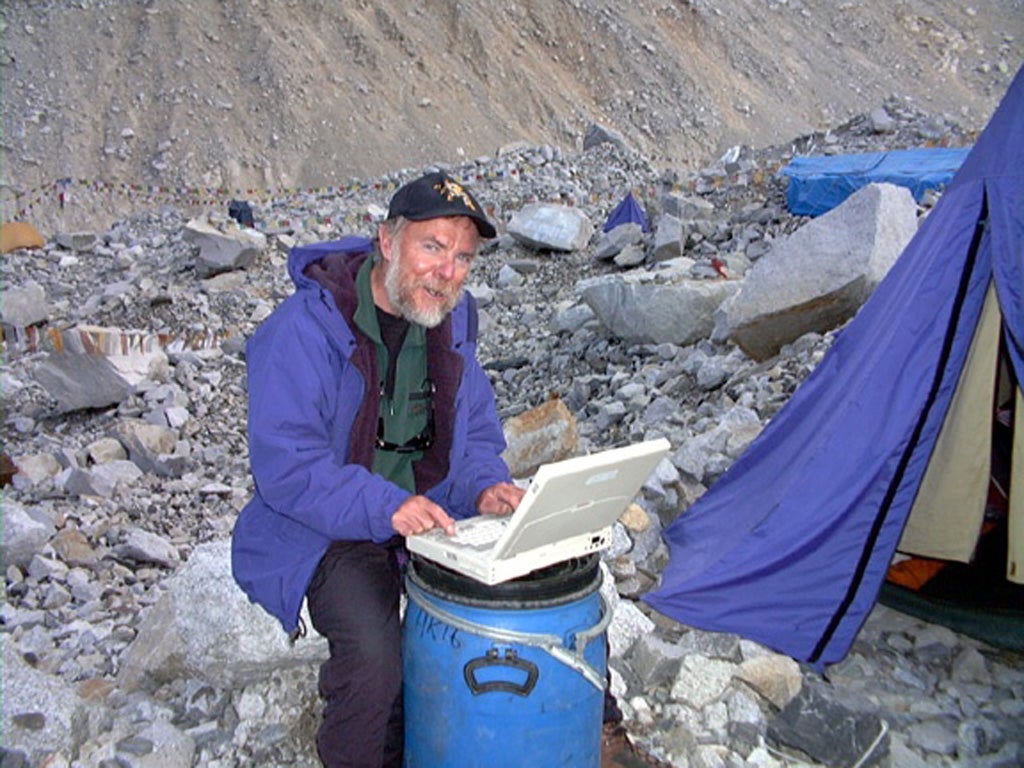Steve Goodwin: It was already busy when I went up Everest. Now it's like rush hour
Everest has become a circus of corporate greed trading on the egos of individuals

As we ascended the steep ridge to the South Summit the queuing was more reminiscent of a supermarket check-out than a supposedly wild mountainside."
The quote is from my report in The Independent of 23 May 1998. Fourteen years on, today's Everesters might paraphrase Crocodile Dundee and retort: "Call that a queue?"
There were perhaps a dozen of us halted that bright mid-morning on the South Summit. At 8,760m, we were less than 100 metres below Everest's main summi,t but owing to a cock-up by another team, nobody was going any higher that day. Beyond lay a narrow crest and the awkward rocky barrier of the Hillary Step – and there was no rope left.
This weekend, some 200 climbers hope to pass the point where we were forced to retreat, and go on to the top of the world. I wish them luck. Anyone who has endured the lung-searing grind for perhaps eight hours up from the camp on the South Col deserves their summit.
But 200 people? Even supposing the weather stays benign, that is a frightening number jostling on an icy aerial gangway, brains and bodies dulled by oxygen starvation and exhaustion. Plodding up, you're on autopilot, scarcely noticing the dawn light spreading across Tibet, which in your right mind should be stupendous, but when you're forced to stop it is suddenly scary.
The wind starts whipping the snow in plumes, you worry over the oxygen supply and you are dehydrated through not wanting to stop to drink and maybe lose your place in the ascending column. It's going to be a long way down. Perhaps it wasn't quite like this for those who have perished on Everest this season, but it is no surprise they died on the descent.
Is this really mountaineering? To Joe Public, since Everest is world's the highest mountain it must be the ultimate goal of every true mountaineer. Far from it.
Given the chance of an Everest trip for free, most climbers would probably jump at it. But, handed £30,000 (the typical cost of a "climb Everest" package) and told to spend it climbing, the majority would go exploring, perhaps among the hundreds of 6,000m plus peaks in the Himalaya, Tibet and China that remain unclimbed.
Everest in the 21st century has become a mirror of the world that most of us go to the mountains to escape: a circus of corporate greed trading on the egos of individuals wanting an eye-rolling piece of dinner party one-upmanship or a marketable line on a CV; media stunts to be the youngest, oldest, first blindfold on a tricycle, etc; and a PC World of relentless communications.
Leanna Shuttleworth, the 19-year old British woman who reached the summit this week, spoke of passing on her way up "quite a few bodies . . . and even a couple who were still alive"; while the decision of one Israeli climber to abandon his attempt to rescue a fellow climber is considered so extraordinary as to make headlines. Meanwhile, three Sherpas died earlier in the season, preparing the route the client-climbers take through the Khumbu Icefall.
Perhaps while they are queuing at the Hillary Step, this weekend's Everest climbers might find time to examine their consciences.
Stephen Goodwin is editor of the "Alpine Journal"

Join our commenting forum
Join thought-provoking conversations, follow other Independent readers and see their replies